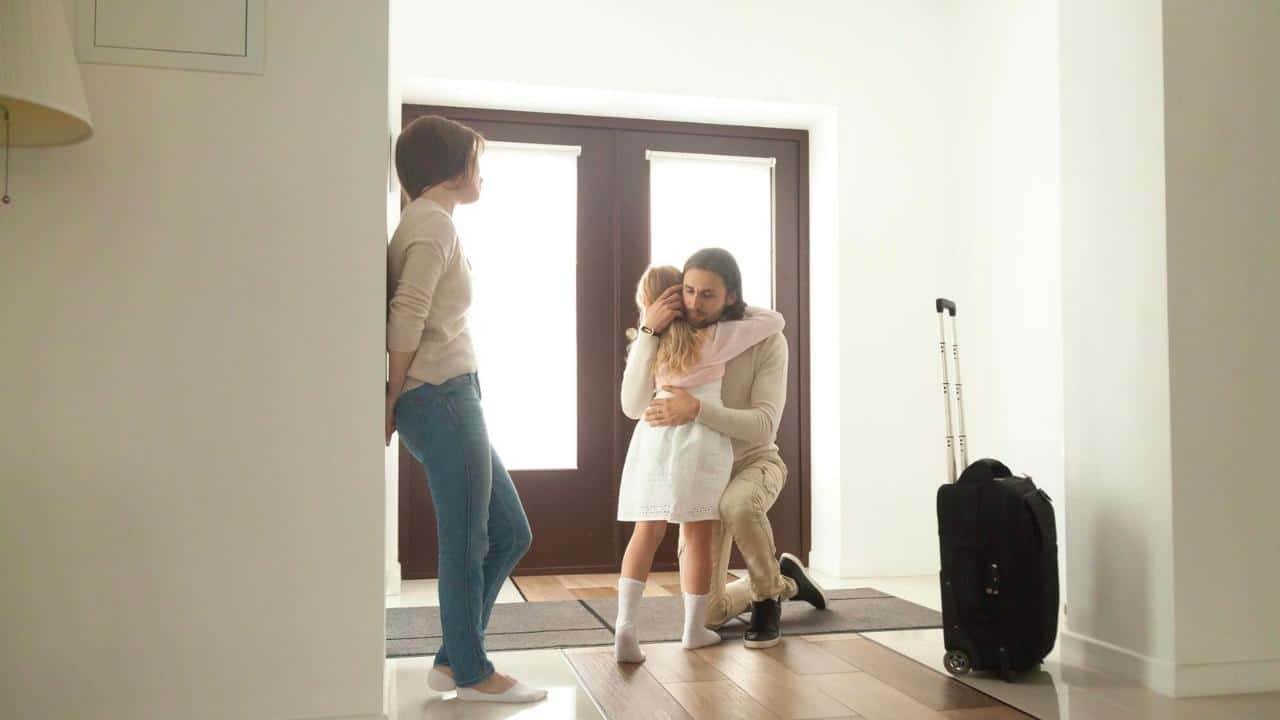It can be tough to stay in a residence with a significant other when the relationship is “over”. However, when minor children are involved, there are many things to consider. There is much planning which has to happen before one party should separate from the joint residence and relocate elsewhere especially when that means separating without your children.
Parenting Time Can be a Challenge
First, if there is no case pending and/or no temporary parenting time schedule, moving out of the home without your children may mean that there is no “regular” time frame in which you will see your child/children for the near future. You will be subject to the mercy of coming to an agreement with your ex regarding when you can exercise parenting time until there is a court order in place governing the schedule. This can make it very difficult since many people who separate do so because they do not get along and cannot agree. Moving out of a home without a parenting time schedule may mean that there will be a period of time where little, infrequent, or no parenting time will take place at all. This is something to seriously consider prior to moving out of a joint residence.
Worry About the “Status Quo”
One factor that the Court considers when allocating parenting time and parental responsibilities (decision making, formerly known as custody, for extra-curricular activities, medical/health care, education, and religious decision for the minor children) is what the status quo has been for the prior twenty-four (24) months. The Court wants to know who has been the primary caretaker, who has made the decisions, who does the day-to-day tasks of feeding, bathing, school work, etc. If a party chooses to separate and move out of a joint residence without their child(ren) and that party had previously functioned as a primary caretaker, that is about to change. The other parent will now be in the role of primary caretaker, presumably. If this goes on for quite some time, perhaps a year, the prior twenty-four (24) months before the case was filed now has a much different status quo. Courts tend to like the status quo, so altering it severely could damage a position where one party was previously the primary caretaker of the children, but not any longer.
You May Have to Pay Child Support or Other Bills, Even If You Move Without Your Children.
Child support is typically paid by the person who has less parenting time, dependent of course on the parties’ respective incomes and the parenting time schedule. So, if one party chooses to move out of a joint residence without the minor children, there is now potentially an argument that said person would have to pay child support, whereas had they stayed with the children they may not have had to.
Another surprising fact to parties who separate in a marriage or divorce situation specifically is that they may still have to contribute to marital expenses and the maintenance of marital assets, even if they are no longer living in the marital home. For example, if one party decides to move out of a marital residence and the house is marital and has a mortgage, the person moving out may still have to contribute to the mortgage and/or property taxes for said home, even if they are not living there. This is situation-dependent, but the thought is that generally a court will uphold marital assets and try to preserve the marital estate. They generally won’t let a marital home mortgage go into default so that one party can move out and pay rent somewhere else. So, just because someone moves out of a jointly held marital home for separation purposes, does not mean they no longer have to pay the bills for said home.
There are many considerations when deciding to separate out of a joint residence and these are just some of the complex issues one must consider. When children are involved separating becomes even more complicated. Feel free to reach out to our experienced family law attorneys if you are thinking about separating without your children to ensure that you are making the best decision for you and your family.















